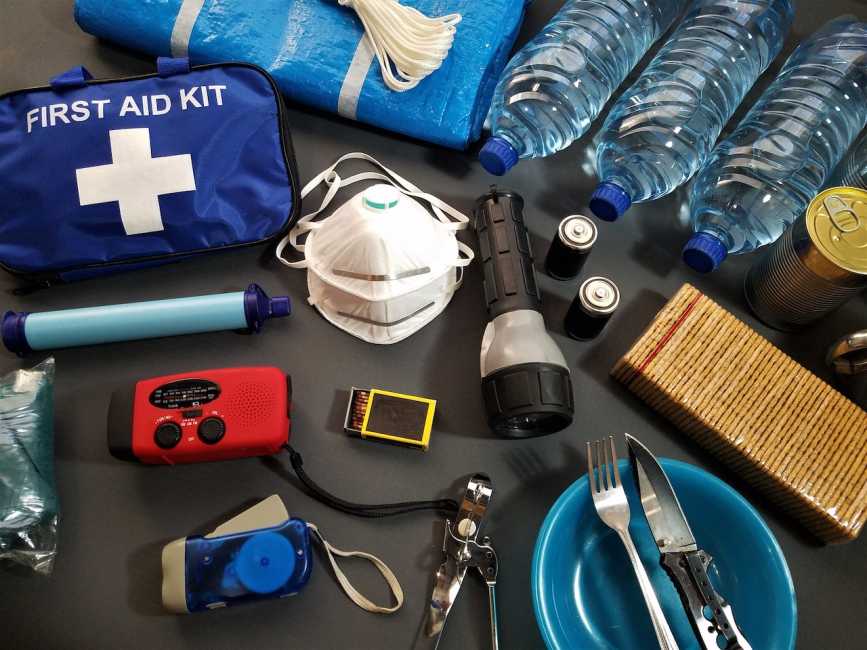Everyone believes that they can’t possibly be the victim of an emergency until it happens to them. The dangers in this world are multitudinous, and many of them can strike at any time to nearly anyone. Others are more predictable but still might not be preventable; for example, if you have a genetic predisposition to high blood pressure or high cholesterol, you may do anything you can to prevent a heart attack but still fall prey to this common emergency.
Though we can’t prevent every possible emergency, we can do everything we can to understand how to respond to them, as this can massively impact the outcome of any such event. Here are four ways that you can prepare for emergencies so that you can intervene – and perhaps save a life.
Understand the symptoms of the most common medical emergencies
When we think of emergency preparedness, we generally imagine what we would do in a huge natural disaster, like an earthquake or hurricane. While these definitely do happen, most emergencies are far more mundane than that, and they generally fall into two categories: medical conditions and unforeseen accidents.
Focusing on the first, it’s important to understand the most common maladies that can affect a large swathe of the population. These include heart attacks, strokes, hypoglycemic episodes for diabetics, choking, and seizures. Each of these has different signs and different tactics that you must take to intervene in an emergency, so you need to know what to do for each of them.
Commit yourself to learning how to take proactive measures during an emergency. The best way you can do this is by taking a first aid course online through trusted trainers like protrainings.com, which describes the symptoms of many common medical emergencies and what actions to take to stabilize a patient before medical help arrives.
Keep emergency kits stocked, up-to-date, and available
Many people brush off first aid kits and emergency kits as irrelevant because they think they only include things like bandages, aspirin, and antiseptic wash, and it’s true that your first aid kit won’t be of much help during a major emergency if that’s all it has. Quality emergency kits have much more than that, including various over-the-counter medications and wound supplies. The best way to ensure you have a great first aid kit is to purchase one from a trusted vendor, preferably one that is recommended by the American Red Cross, as these are professionally selected and prepared.
That is not the only kind of kit you should have, though: you also need to have an emergency kit available in your home and any vehicles you have so that you can protect yourself during extreme weather events or natural disasters. These are difficult to get right, as you want them to be portable but comprehensive, and some of these supplies can be rather bulky. Take time to develop your emergency kit and personalize it for your own situation. Don’t forget to include supplies for any pets you might have!
Another thing that’s important to consider is keeping your most important documents in an easy-to-access place in case you have to leave your home for any reason. This includes things like birth certificates, Social Security cards, IDs, and a list of emergency contacts. You should also consider adding some personal items in here, such as small keepsakes and photographs of loved ones: should your home burn down or be destroyed, these may be the only items you have left to remember what’s most important to you.
Develop and practice a plan with your family
Knowledge and preparedness mean little if it’s not combined with practice. You need to make this as natural as possible so that should you face a real emergency, everyone knows what to do right away. In an emergency, there might not be time to discuss your plans with everyone: it’s essential that you do this communication ahead of time and reinforce it so that no one is confused about what to do.
Consider the most common emergencies your family might face, whether that is medical concerns related to a family member’s medical conditions or larger disasters like house fires or tornadoes. With the training you’ve received, explain everything to your loved ones and have them practice these skills together.
Make sure that every family member knows where the emergency kits are, what’s in them, and how to use everything. Ensure they also know where you keep the important documents your family will need if you need to leave home for some reason. Should you have to leave home, decide on a place to meet after leaving; you might consider having several places depending on how far away you must get from your home, such as one a few blocks away to one several miles away.
We can’t prevent every emergency, but we can prepare for them with the proper training and practice. It’s easy to let this fall to the wayside and focus on everyday matters, but take some time today and get ready, as you never know what may happen in your life.

